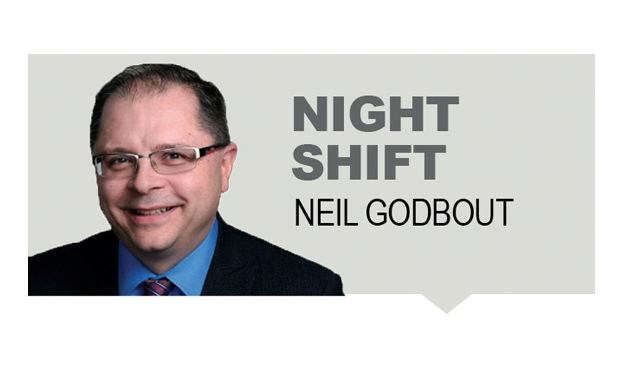Fentanyl and opiates may have dominated the headlines in recent years but another group of drugs is making a surprising return in a positive way.
Psychedelics are back, as evidenced by a growing body of fascinating research, a recent segment on 60 Minutes and Michael Pollan's book How To Change Your Mind: What the New Science of Psychedelics Teaches Us About Consciousness, Dying, Addiction, Depression, and Transcendence.
Let's start with the fun Canadian fact - the word psychedelic was born in a hospital in the mighty metropolis of Weyburn, Sask.
Turns out the Souris Valley Mental Hospital was one of the most important research facilities in the world during the 1950s on the use of lysergic acid diethylamide (you may be more familiar with its abbreviated name - LSD) to better understand brain chemistry and to treat addictions.
Hundreds of alcoholics were treated over several years and the results were startling -success rates as high as 90 per cent, even up to two years later.
When Dr. Humphry Osmond and Dr. Abram Hoffer published their results, other medical researchers in Europe and the United States joined in, not only with LSD but with other pychedelics, particularly with psilocybin (the naturally-occuring chemical that makes certain kinds of mushrooms "magic").
The context of the times is important. Psychedelics weren't illegal yet and new, miraculous drugs were changing the world. The polio vaccine had just been developed and penicillin was still new. Society was open to more discoveries by chemists and doctors.
Osmond first used the term psychedelic (it's Latin for "mind manifesting") in a 1957 research paper (he even made up a rhyme to remember it - "to fall into hell or soar angelic, just take a pinch of psychedelic") and the word stuck, first in the medical community and then in broader society, especially during increasing public awareness and then fear (thanks to the thalidomide tragedy and crazy hippie talk from Timothy Leary) in the 1960s led to the drugs being outlawed.
Research dried up for decades but over the past 10 to 15 years, scientists and doctors across the world have been quietly investigating the medical potential of psychedelics.
Here in B.C., researchers and graduate students at both UBC in Vancouver and UBC Okanagan in Kelowna have published results (nothing at UNBC - yet), from treating PTSD sufferers to reducing domestic violence.
If this sounds like the cure being worse than the disease scenario, guess again. The reason psychedelics show so much promise is because, like cannabis, they seem to not be addictive, toxic or lethal when overdosed, unlike opiates.
And then there's the recreational aspect, which Pollan explores in his book, both personally and professionally. While researchers are shy to talk about it (because the drugs are still illegal and carry 50 years of bad reputation), there is a recognition that psychedelic drugs may have something to contribute to overall mental wellness, even in healthy individuals.
One researcher likened it to shaking a snow globe - the globe isn't damaged, internally or externally, but it resets the display. Another unpacked the word recreational, noting that psychedelics can recreate the mind.
If that sounds frightening, it can be, but some research shows it can help people face the greatest fear of all. In studies involving psychedelics being used for end-of-life patients, many people emerged from treatment far calmer and more at peace with the prospect of their imminent death. Meditation and other non-pharmaceutical techniques, such as breathing, can lead to similar insights and experiences but psychedelics don't obviously involve months and years of practice.
The psychedelic testing currently happening still uses many of the techniques pioneered by Ormond and Hoffer in Weyburn. They quickly realized physical and mental settings are important factors contributing towards the success or failure of psychedelic-assisted psychotherapy. Participants are prepared for the gamut of emotions they may feel during their experience, everything from intense fear to overwhelming joy and love. Tests are done in quiet, comfortable settings with a therapist on hand to guide the individual through negative feelings during the experience by reminding them they are safe and to face those fears and explore them. Afterwards, debrief sessions are held to explore and understand their experience.
In terms of brain research, psychedelics are providing revolutionary insights into how the brain and the mind work. For example, a new theory of depression and anxiety suggests that these conditions may be the result of parts of the brain working too hard to impose order and structure, rather than a breakdown in organization.
Thinking differently - about ourselves, each other and about psychedelics - could lead to some interesting developments, both medically and socially, in the coming years.



